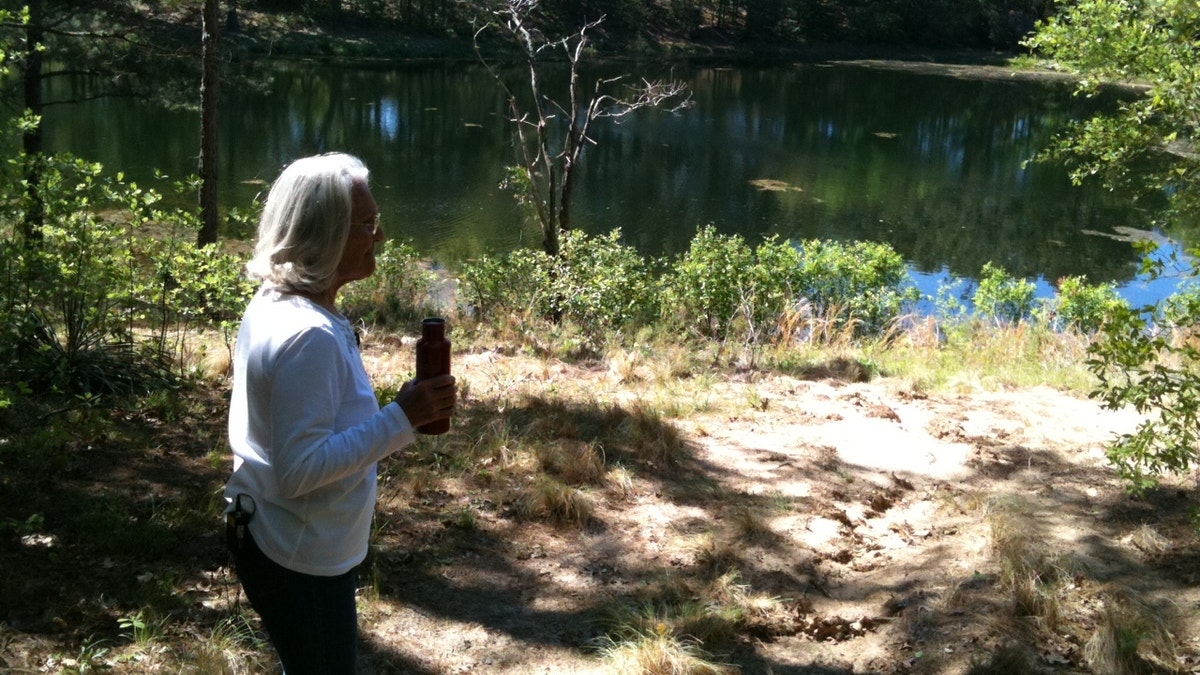
Texas homeowner, Eleanor Fairchild, looks out over her property that may be disrupted by an undergroup pipeline.
Walking along with Eleanor Fairchild, it’s easy to see why she and her late husband fell in love with their property in East Texas. It’s more than 300 acres of wooded hills and wide open grassy meadows now dotted with wildflowers. It also has a 4-acre lake where Fairchild, in her 70s, still loves to fish. “This was our dream place,” says Fairchild, “it really was.”
That dream has turned into something of a nightmare ever since Fairchild learned that an underground pipeline could cut through a mile of her property. The TransCanada Keystone Pipeline will stretch more than 1,600 miles, from Alberta, Canada, down through six American states, ending in Texas, where the oil will be refined.
Fairchild says “upset” doesn’t begin to describe how she feels about the pipeline coming through her property. “They're going to come in and take down trees,” she says, ”Bulldoze them down … They tell you it's eminent domain.“
Fairchild has decided to get an attorney and fight the pipeline. David Daniel, Fairchild’s neighbor a few miles down the road, says he made a deal with TransCanada, but only because he thought he had no choice. He says company representatives told him the pipeline was a done deal, something he found out later was not the case. Says Daniel, “From what I've been through personally, I have no reason to trust the company. At all."
Here is how the deal works. TransCanada pays a certain price to come in, tear up the land for the pipeline, then maintain access to it over the years for maintenance. The company can try to negotiate a price with landowner, but if no deal is struck, it can use eminent domain to gain access to the land.
TransCanada denies it has treated anyone unfairly, and insists before the company starts eminent domain proceedings, it tries to negotiate with all landowners, offering them full, current market value for access to any property.
Given the enormity of the project, that amounts to thousands of land owners. Eminent domain proceedings vary from state to state. Shawn Howard, a spokesman for TransCanada, says while damage to an individual’s property is regrettable, something has to be done. “America has a choice,” says Howard.
“You have a large appetite for oil and for energy products.” The pipeline’s advocates say the U.S. can continue to rely on the unstable Middle East for oil, or instead increasingly turn to countries like Canada.
There are also potential environmental concerns about the project. The U.S. State Department will weigh those and other potential issues before it makes a final decision to clear the project. That decision is expected by the end of the year.

